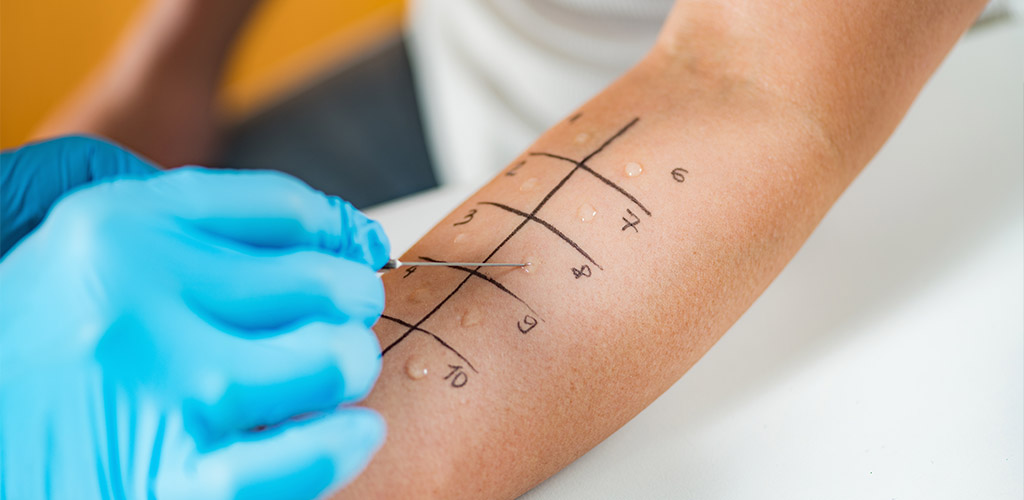/ Advice

Have you ever put on bacitracin, only to have the injured area get more swollen and irritated? Or maybe you’ve put in your favorite pair of earrings, only to have your earlobes swell up around the posts a few hours later. As it turns out, any number of seemingly harmless items may cause an allergic reaction, as even a single ingredient or additive can irritate the skin. People often turn to patch tests because skin prick tests and intradermal tests haven’t narrowed down the cause of their allergies. Patch testing also offers the unique advantage of helping diagnose delayed allergic reactions. Haryani Dermatology and Aesthetics is now offering T.R.U.E. TEST®, a convenient, ready-to-use patch test for the diagnosis of allergic contact dermatitis.
Allergy patch tests are used to diagnose allergic contact dermatitis, also called allergic eczema. People with allergic contact dermatitis will experience redness, itchiness, flakiness, bumpiness, blistering or thickening of the skin when they physically come in contact with an allergen. While most people develop a rash at the site of contact, the rash and itch may also spread to other parts of the body. This is because allergic contact dermatitis is an immune system overreaction, just like any other allergy. Allergic contact dermatitis is particularly difficult to diagnose because you will not have a reaction the first time you touch the offending substance, as your body is not yet sensitized to it. You can also develop this kind of allergy at any point in your life, even if you’ve made contact with the allergen a million times before.
Allergy patch testing takes place over the course of three appointments. Your physician will place 36 patches on your body, each containing an allergan known to cause allergic contact dermatitis. During the course of your appointments, your physician will check for any reactions. As you wait for your next appointment, you must take great care not to disrupt the patches by avoiding contact with water as well as excessive sweating.
If your patch test comes back positive, the best way to ease allergic contact dermatitis is to avoid the offending substance during your daily life. This may mean switching beauty products or shampoos, giving up products with certain additives in them. You do not have to live with the redness and discomfort of skin irritation forever. If you don’t know what’s causing your skin reaction, it may be time to get it tested and start the treatment you need.



